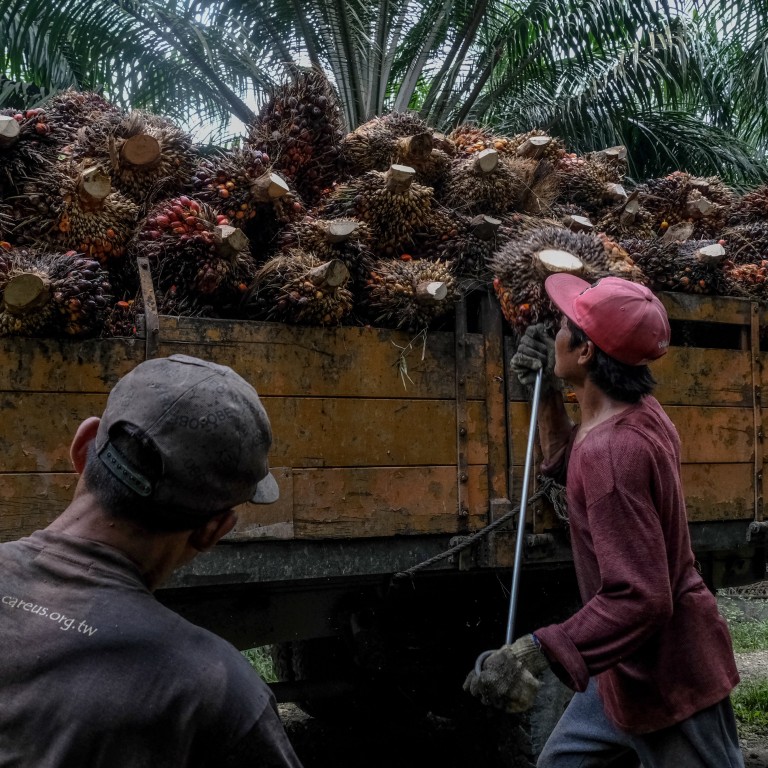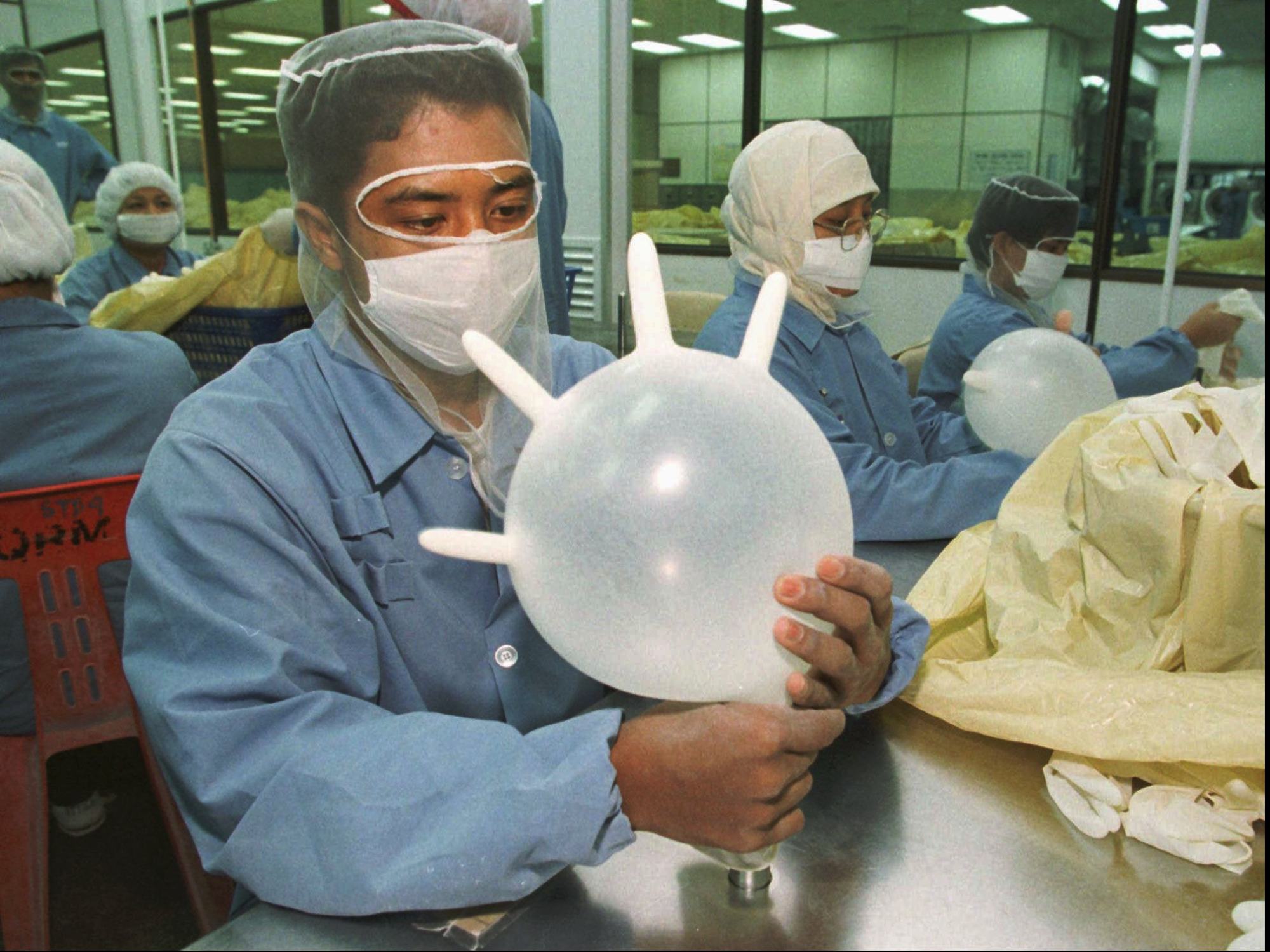
Malaysia summons companies facing US bans over forced labour
- Disposable glove maker YTY Group and palm oil producer Sime Darby Plantation Bhd were identified by the US on Friday as having used forced labour
- Malaysian factories have been under increased scrutiny over allegations of abuse of migrant workers, who make up much of the country’s manufacturing workforce
Malaysian factories, which include major suppliers of palm oil and medical gloves, have been under increased scrutiny over allegations of abuse of migrant workers, who make up a significant part of the country’s manufacturing workforce.
US Customs and Border Protection said on Friday it would bar imports from disposable glove maker YTY Group based on information indicating that the firm used forced labour, the seventh such ban on a Malaysian company in two years.

The agency also determined that Malaysian palm oil producer Sime Darby Plantation Bhd uses forced labour in its operations and that the company’s goods were subject to seizure.
Malaysian Human Resources Minister M. Saravanan said on Sunday he would meet with all firms facing import bans in the United States, along with two glove makers – WRP Asia Pacific and Top Glove Corp. – which previously had bans lifted.
Malaysia’s labour rights record under scrutiny as investors prioritise ESG
“The approaches implemented by these two companies can be used as guidelines and improvements for other firms,” Saravanan said in a statement.
Saravanan said he had also ordered an immediate inquiry into the allegations by the Ministry of Human Resources and Department of Labour, and warned of stern action against companies that failed to improve their practices.
The minister had acknowledged that forced labour allegations against Malaysian firms had affected investors’ confidence in the country.
Malaysia last year announced a National Action Plan on Forced Labour to eliminate abusive practices such as debt bondage, unhygienic dormitories for workers, and excessive overtime, by 2030.
Despite the position [US Customs and Border Protection] has taken, we will redouble our efforts to engage with them
In its response to Friday’s ban, which the US said was “based on information that reasonably indicates the use of forced labour in YTY Group’s manufacturing operations”, the group said it was “surprised and disappointed”, as it had made demonstrable progress since 2019 in improving its social compliance policies, particularly in its treatment of migrant workers.
YTY Group said it had submitted an update to US Customs and Border Protection this month, saying it had met compliance targets on all 11 International Labour Organization indicators of forced labour.
“Despite the position the CBP has taken, we will redouble our efforts to engage with them … to not only demonstrate that our manufacturing operations are devoid of any and all forced labour practices, but to reaffirm ongoing social compliance advancements,” YTY CEO Vikram Hora said in a statement late on Saturday.
US bans imports from Malaysian glove maker YTY
CBP said it had identified seven of the ILO indicators during its investigation into YTY Group, including debt bondage, abusive working and living conditions, and excessive overtime.
Effective from Friday, the agency will detain goods made in Malaysia by YTY Group and its units YTY Industry Sdn Bhd, Green Prospect Sdn Bhd and GP Lumut at all US ports of entry.

